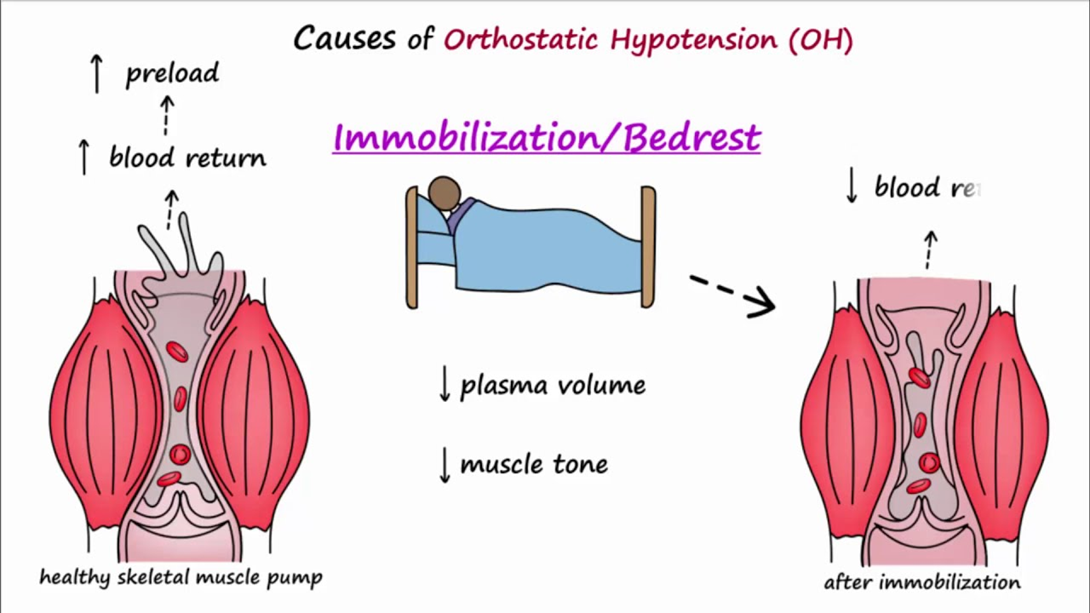Which data does the nurse identify as a nonmotor finding for the client with Parkinson's disease?
Hyperglycemia
Hypertension
Diarrhea
Depression
The Correct Answer is D
Choice A reason: Hyperglycemia is not typically a nonmotor symptom of Parkinson's disease. It is more commonly associated with metabolic conditions such as diabetes.
Choice B reason: Hypertension is not a nonmotor symptom specific to Parkinson's disease, although it can be present in many other conditions.
Choice C reason: Diarrhea is not commonly a nonmotor symptom of Parkinson's disease. Gastrointestinal symptoms like constipation are more prevalent.
Choice D reason: Depression is a recognized nonmotor symptom of Parkinson's disease. It can significantly affect the quality of life and is often underdiagnosed in these patients.
Nursing Test Bank
Naxlex Comprehensive Predictor Exams
Related Questions
Correct Answer is B
Explanation
Choice A reason: A soft diet with thin liquids may be recommended for patients with Parkinson's disease who have difficulty swallowing (dysphagia), but it is not the most appropriate intervention for all patients. Dysphagia is common in Parkinson's disease due to impaired muscle movement, and a soft diet can help prevent choking and aspiration.
Choice B reason: Assessing for orthostatic hypotension is crucial in the care of patients with Parkinson's disease. Orthostatic hypotension is a common non-motor symptom where there is a significant drop in blood pressure upon standing. Normal blood pressure should not drop more than 20 mm Hg systolic or 10 mm Hg diastolic within 2 to 5 minutes of standing². This condition can increase the risk of falls, which is a significant concern in this population.
Choice C reason: Exophthalmos, the bulging of the eyes, is not associated with Parkinson's disease. It is typically related to thyroid eye disease, such as Graves' disease, and would not be a relevant assessment for a Parkinson's patient unless there is a known co-existing thyroid condition.
Choice D reason: Limiting fluids to prevent urinary incontinence is not an appropriate intervention for Parkinson's disease. Adequate hydration is essential, and urinary incontinence should be managed with other strategies, such as bladder training, scheduled toileting, and possibly medication, depending on the cause.

Correct Answer is B
Explanation
Choice A reason: Prolonged vomiting typically leads to metabolic alkalosis due to the loss of gastric acid, which is not consistent with the ABG results showing acidosis.
Choice B reason: COPD can lead to respiratory acidosis, as indicated by the elevated PaCO2 and low pH in the ABG results, making it a likely contributor to these findings.
Choice C reason: Chronic renal failure can lead to metabolic acidosis, but the HCO3 level is within the normal range, which does not support this as the primary condition.
Choice D reason: Anxiety and hyperventilation usually result in respiratory alkalosis due to the excessive exhalation of CO2, which is the opposite of what the ABG results show.
Whether you are a student looking to ace your exams or a practicing nurse seeking to enhance your expertise , our nursing education contents will empower you with the confidence and competence to make a difference in the lives of patients and become a respected leader in the healthcare field.
Visit Naxlex, invest in your future and unlock endless possibilities with our unparalleled nursing education contents today
Report Wrong Answer on the Current Question
Do you disagree with the answer? If yes, what is your expected answer? Explain.
Kindly be descriptive with the issue you are facing.
